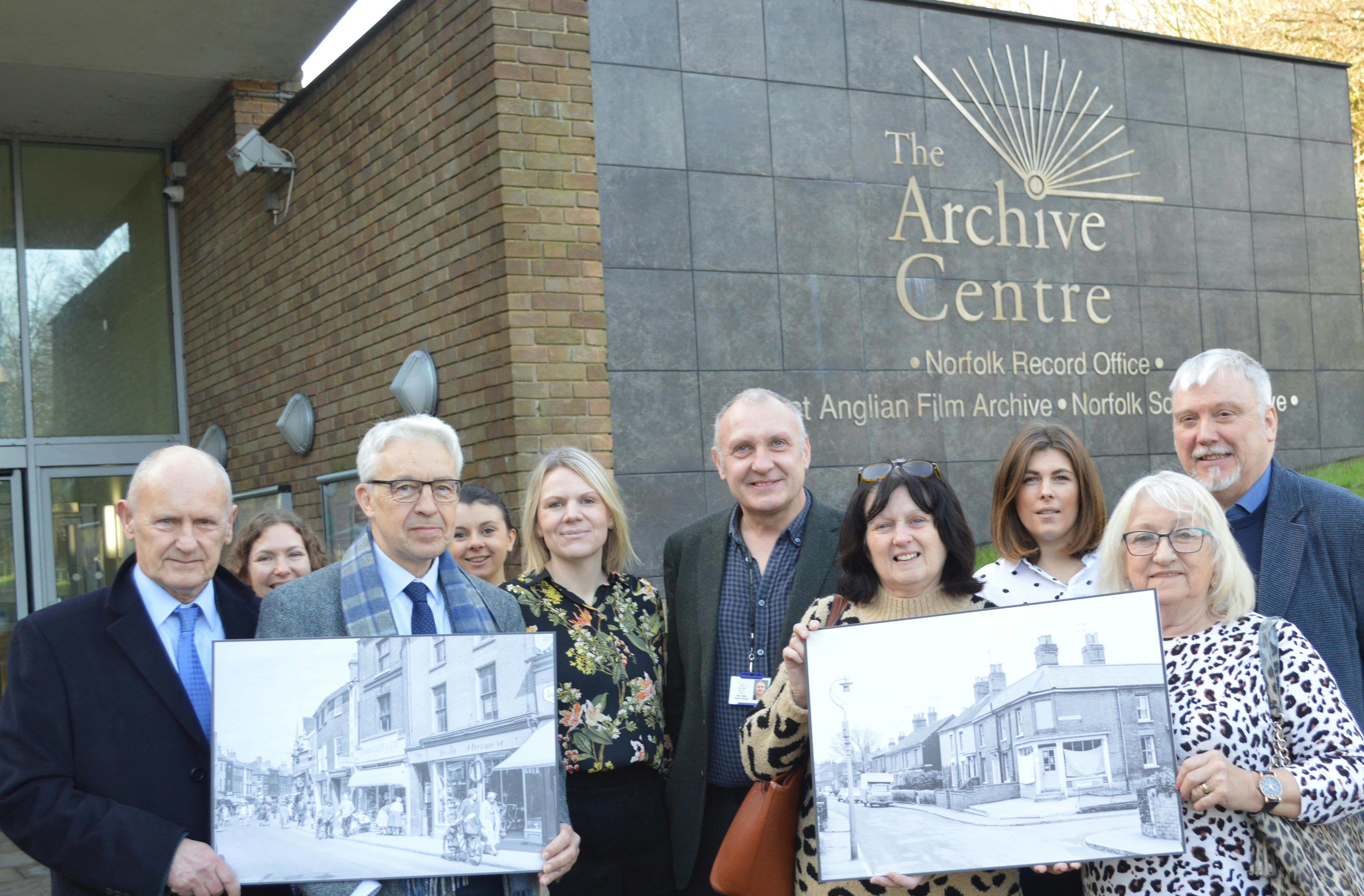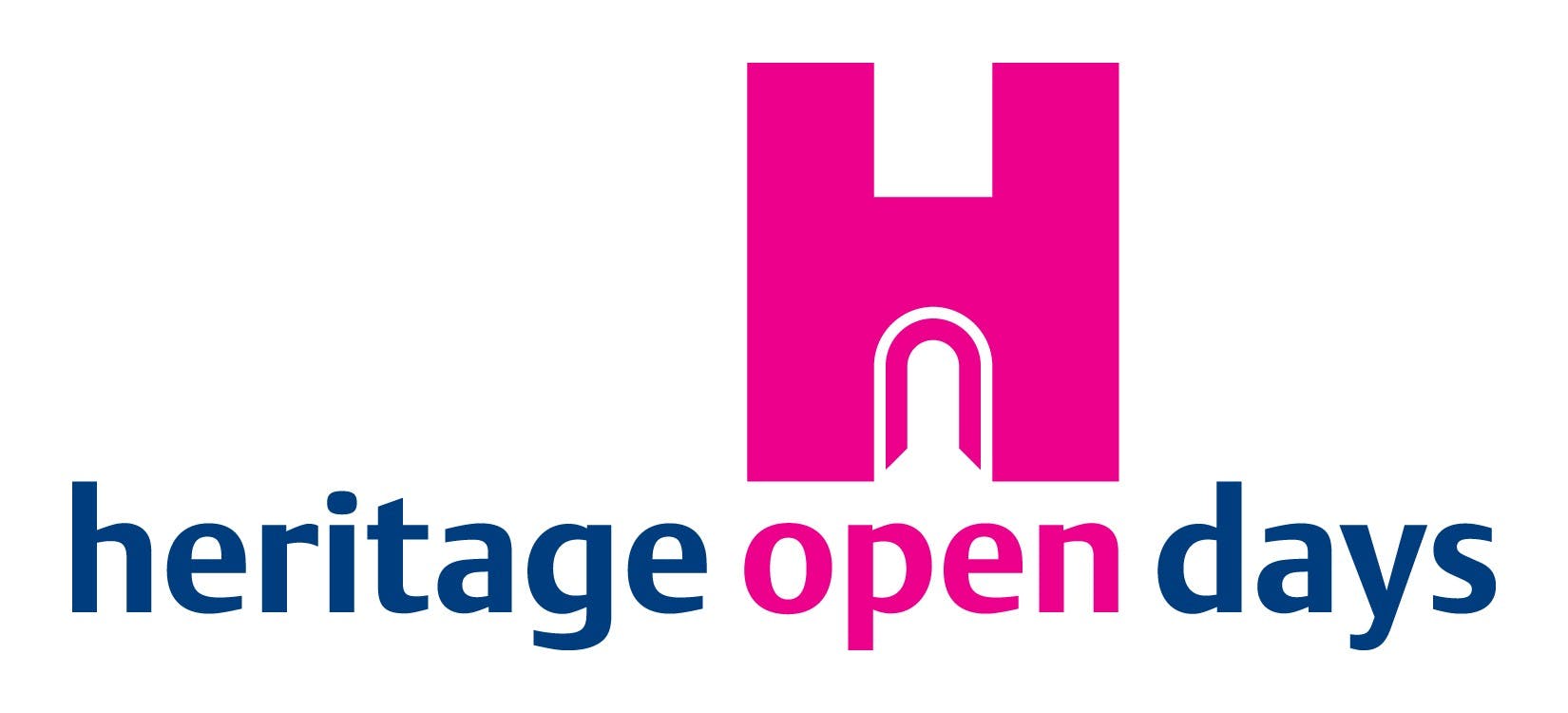Unique photos and memories of former Norwich streets added to Norfolk Record Office archives

A collection of photographs and recordings which made up a unique exhibition during Norfolk’s Heritage Open Days have been deposited at the Norfolk Record Office to preserve them for future generations.
The photos were the work of talented Norwich photographer Jack Roberts who died in 2005. While many photographers concentrated on the landmark buildings in the city, Jack would wander down the backstreets and quiet corners with his camera round his neck, capturing parts of Norwich which are now long lost or forgotten.
Part of his collection made up the Portraits of Life exhibition at The Forum, Norwich during Norfolk Heritage Open Days from 13 to 22 September 2019, attracting thousands of visitors through the doors to reminisce about days gone by.As well as having 40 of Jack’s photographs on display, the exhibition also included recordings with 25 participants who shared their stories and memories of the places pictured along with a video showcasing more of Jack’s work.
The exhibition was made possible thanks to Derek James and Bill Smith, custodians of the Jack Roberts Archive, who were given Jack’s original negatives to scan and preserve.And now digital versions of the photos which were on display, unedited recordings of each interview and the video showcasing 90 of Jack’s images have been deposited at the Norfolk Record Office by Derek, Bill and the Norfolk Heritage Open Days team.
Katie Ellis, Event Producer for Heritage Open Days, said: “We welcomed over 3,500 visitors to the exhibition during Heritage Open Days and we’re delighted that Jack’s photos and the participant recordings are being deposited at the Norfolk Record office so that others can now access and learn about the way of life from the very people who defined these communities.”
Jack was born at his parents’ home in Barn Road, Norwich, in 1917. He went to the old Technical College and then left aged 15 to work at Coe’s photographic studios in London Street. He served as a medical orderly in the Far East during the Second World War, nursing the survivors of the jungle slave camps. On his return, Jack went back to Coe’s and continued to take pictures of the city he loved.
Derek said: “Jack was the forgotten photographer and it was an honour and a privilege to have been able to share his work with the people of Norwich and Norfolk.“His battered old box of negatives proved to be a treasure chest of memories. The pictures, taken of his beloved city over many years, were often of long lost roads and neighbourhoods rarely photographed.“To watch and listen to people saying how wonderful it was to see the pictures and hear their stories has made it all worthwhile. One told me: “That’s where I was born. I have never seen a photograph of the house before.”
Bill added: “We are so pleased to have been able to save Jack’s work for the future, and stress how important old photographic negatives can be in retrieving every last detail from a professional photographer’s work."
Jonathan Draper, Partnership and Development Manager at Norfolk Record Office, said: “The Norfolk Record Office is delighted to receive the recorded oral history recordings, and the photographs of Jack Roberts, generated by the Portraits of Life project. The NRO will preserve and provide public access to this important record of Norwich before its large-scale redevelopment of the 1970s. Roberts’ photographs and the recorded memories of Norwich residents will complement the written record of Norwich.”
The photos include shots of Lady Lane, Douro Street, Napier Street, Charles Street, Wiggs Passage and many more

